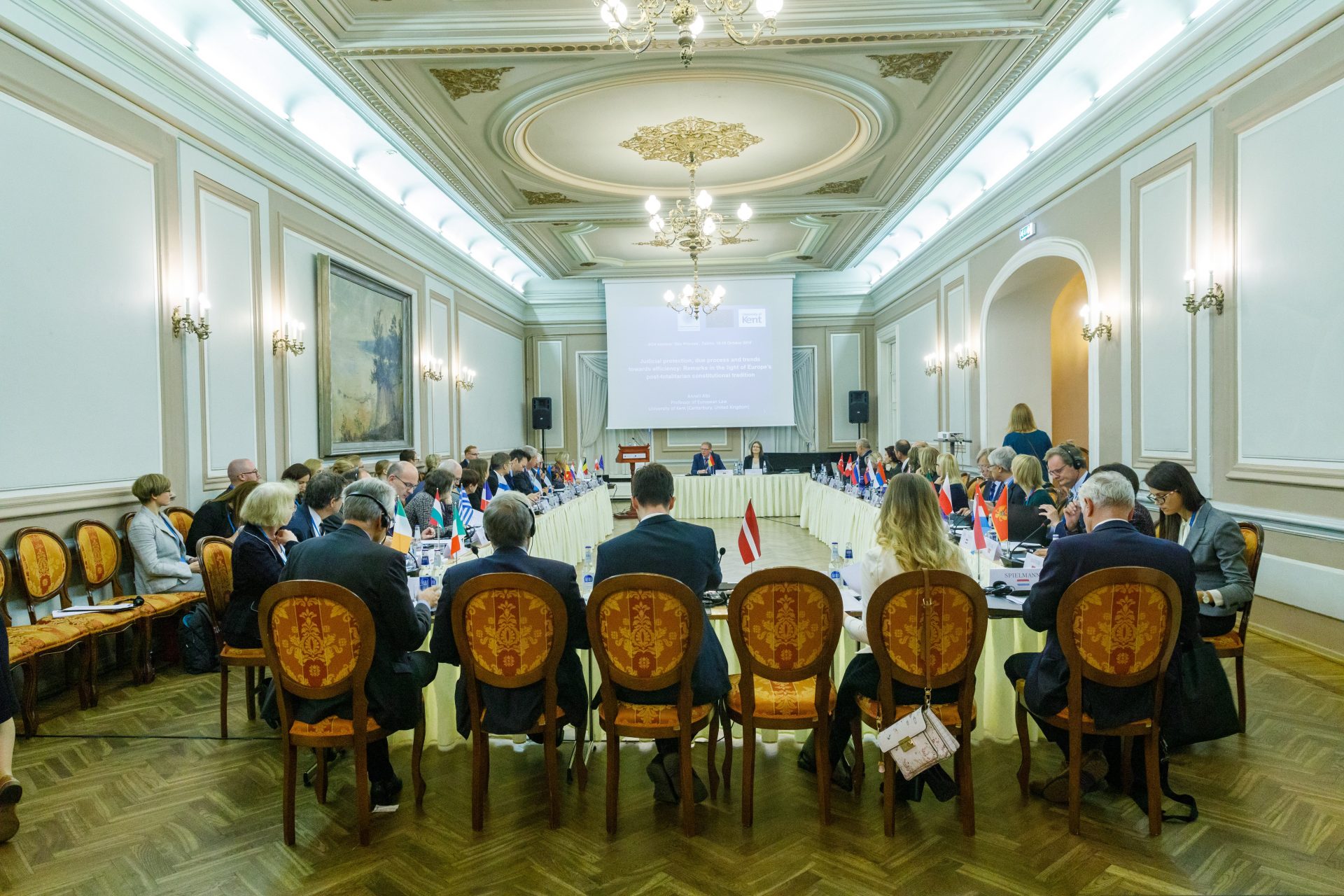This project is funded by European Research Council's Independent Starting Grant Scheme that is designed to support frontier research. The project started in 2012 and is being completed in 2019, with follow-up events planned for 2020.
The research is being conducted by Professor Anneli Albi, the Principal Investigator of the project, and a Kent-based team. The research will draw on reports by a Network of Constitutional Experts, which brings together leading constitutional law scholars and judges from high courts in the twenty-eight Member States of the EU, and, additionally, Switzerland.
The project has three objectives:
- To carry out a comparative analysis on how constitutions reflect the transfer of powers from domestic to European and global institutions, and thus to what extent they provide legitimacy to the shift in the exercise of power to the transnational level.
- To revisit constitutional values that have a continued importance in the contemporary globalising and pluralist legal setting. These include the protection of constitutional rights, the rule of law, legitimacy, democratic participation, separation of powers, judicial review and setting limits to the exercise of power. These are explored in particular with reference to national and EU adjudication of the European Arrest Warrant, Data Retention Directive, single market case law, the ESM Treaty, and EU and IMF financial crisis and austerity measures.
- To explore the challenges that are increasingly highlighted in the context of global governance in relation to legitimacy, democratic control, accountability and the rule of law, especially as regards policy responses to the global financial crisis.
The questions explored in the project are illustrated by the ESM Treaty case in the Estonian Supreme Court (pictured below). The Treaty was approved with a narrow majority of 11 judges against 9. The nine dissenting judges found that the unprecedented financial commitments under the ESM Treaty are incompatible with the requirements of the democratic, rule-of-law-based social state.

Image by Kari Käsper
Enhancing substantive constitutionalism
More broadly, the project invites scholars to reflect on what has increasingly been described as the erosion of constitutionalism (Grimm), ‘twilight of constitutionalism’ (Dobner and Loughlin), ‘de-constitutionalisation’ at the domestic level or the ‘hollowing out’ of national constitutions (Peters) and ‘waning constitutionalism’ (Rasmussen). Others have noted a trend towards a thin, weak and procedural version of the rule of law, democratic control and judicial review in the context of Europeanisation and globalisation processes, with reduced opportunities for citizens to challenge public decisions (Harlow; Galera).
The material in the national reports is synthesized in a comparative study, where it emerges that these concerns are not unfounded. Discussion is invited on whether the direction of travel ought to be towards a thinner type of constitutionalism, or towards upholding substantive constitutionalism? The project’s constitutional experts have put forward a wealth of welcome suggestions for a more proactive engagement on the part of national courts, parliaments and other institutions to uphold and enhance substantive constitutional standards in the transnational context.
Sign up to the newsletter here
